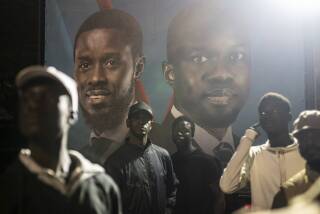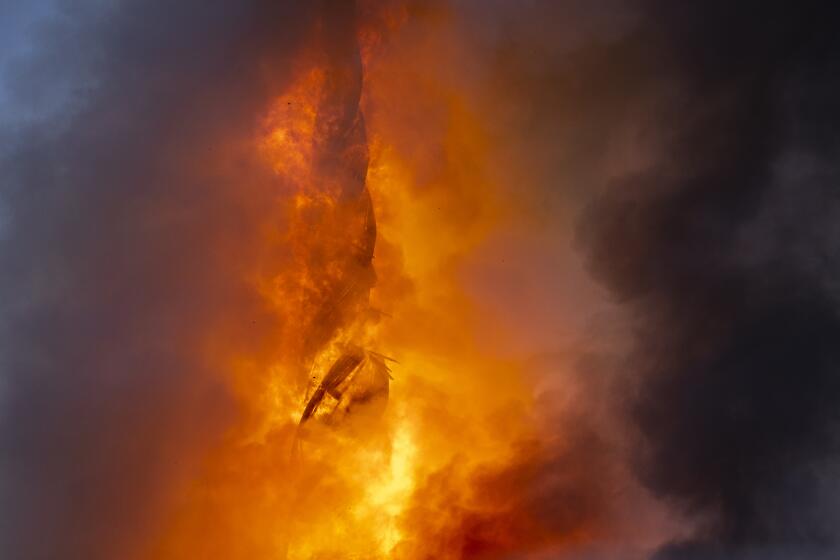African Union urges Congo to delay final results in contested election
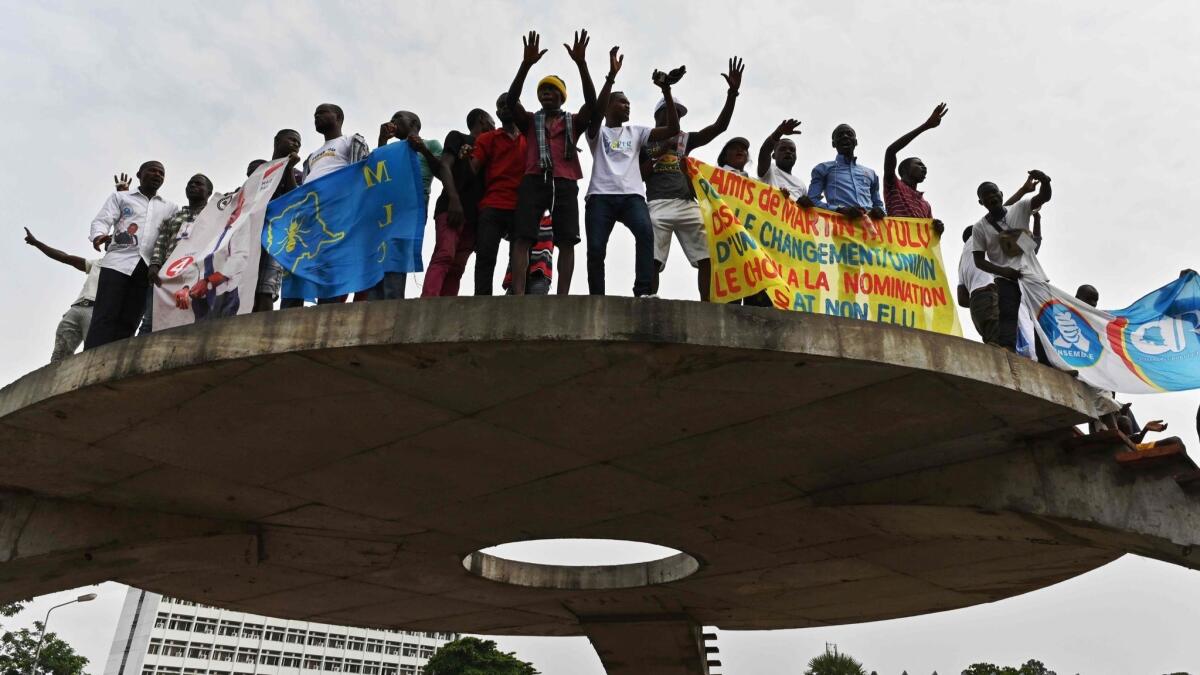
Congo’s constitutional court was poised to rule as early as Friday on a challenge to the presidential election results. But the African Union continental body issued a surprise last-minute request for Congo’s government to delay releasing final results, citing “serious doubts” about the vote.
The declared runner-up, Martin Fayulu, has requested a recount, alleging fraud.
Upholding the official election results could spark new violence in a country hoping for its first peaceful, democratic transfer of power since independence in 1960. At least 34 people have been killed since the release Jan. 10 of provisional results showing another candidate, Felix Tshisekedi, as the winner, the United Nations said.
The African Union statement late Thursday said heads of state and government agreed to “urgently dispatch” a high-level delegation to Democratic Republic of Congo for “a way out of the post-electoral crisis” in the vast Central African nation rich in the minerals key to smartphones and electric cars around the world.
Congo’s many neighbors are concerned that unrest could spill across their borders. The delegation will leave for Congo on Monday, an African Union spokeswoman said. Congo’s inauguration is set for Tuesday.
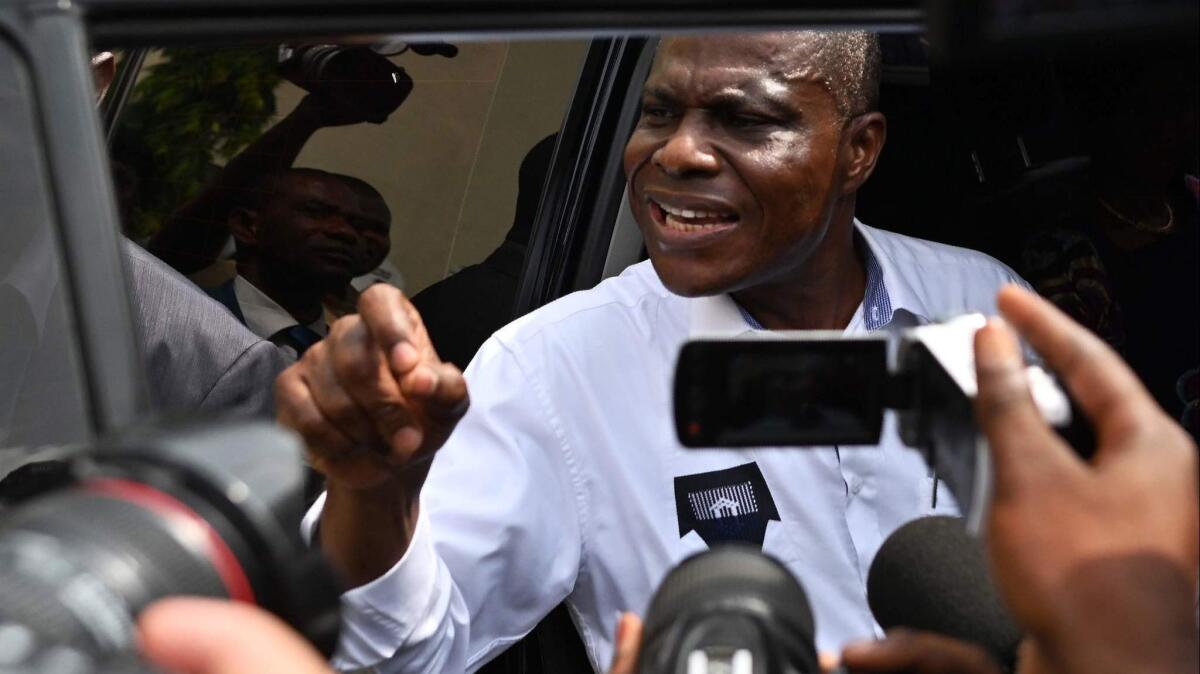
Congo’s government dismissed the African Union request, with spokesman Lambert Mende calling it a matter for judicial bodies, and “the independence of our judiciary is no problem.” He added: “We will not refuse contacts with other members of the African Union.”
Fayulu has asked the court for a recount of the Dec. 30 election, asserting that Congo’s electoral commission published provisional results wildly different from those obtained at polling stations.
Congo, formerly known as Zaire, faces the extraordinary accusation of an election allegedly rigged in favor of the opposition. Outside court, Fayulu has asserted that outgoing President Joseph Kabila made a backroom deal with Tshisekedi when the ruling party’s candidate did poorly.
The electoral commission has said Tshisekedi won 38% of the vote and Fayulu 34%. However, results compiled by the influential Catholic Church based on information from its 40,000 election observers show Fayulu won with 61%.
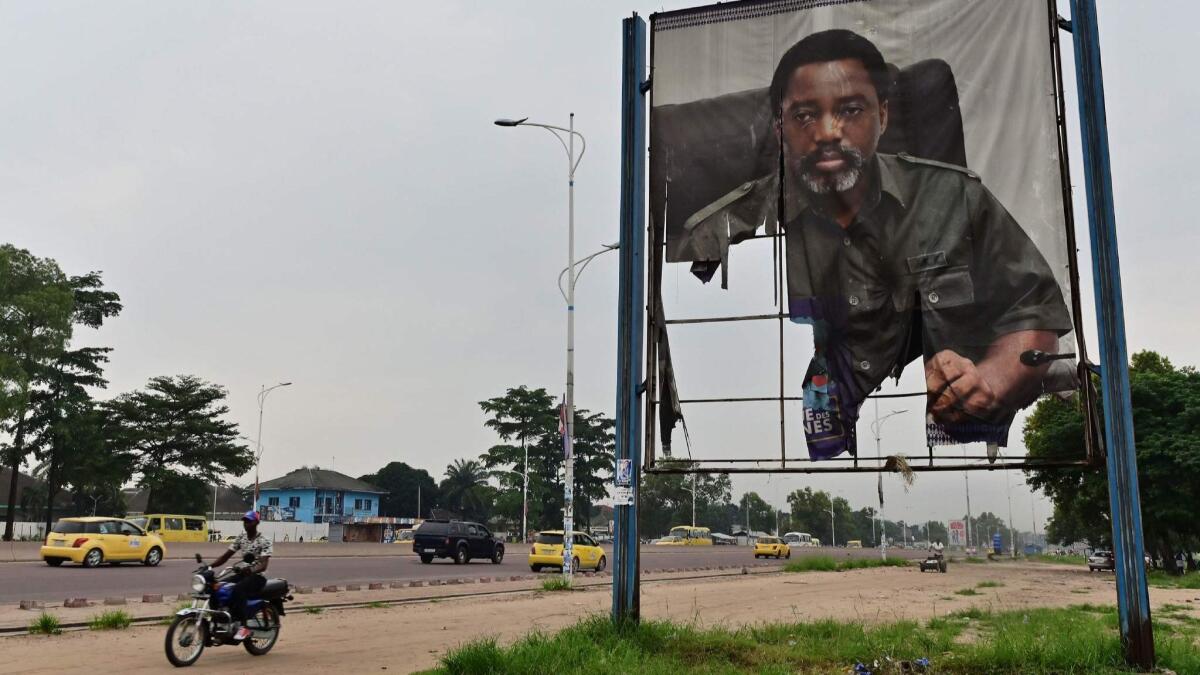
In leaked data published this week by some media outlets, attributed to the electoral commission and representing 86% of the votes, Fayulu won 59.4% while Tshisekedi received 19%.
The uncertainty has led to some protests. The U.N. rights office in Congo has documented 59 people wounded since provisional results were announced on Jan. 10, along with 241 “arbitrary arrests.”
The court could uphold the election results, order a recount or order a new election.
It is likely that the court, full of Kabila appointees, will confirm Tshisekedi’s victory, said Adeline Van Houtte, an analyst at the Economist Intelligence Unit.
“It will come with the risk of increased instability, which could put a halt on the electoral transition,” Van Houtte said in a statement. “However, it would also mean that Kabila will have avoided the worst-case scenario for him,” a Fayulu presidency.
Fayulu, a lawmaker and businessman who is outspoken about cleaning up Congo’s sprawling corruption, is seen as more of a threat to Kabila, his allies and their vast wealth. Tshisekedi, the son of a charismatic opposition leader who died in 2017, is relatively untested and has said little since the election.
The election came after more than two turbulent years of delays as many Congolese worried that Kabila, in power since 2001, was seeking a way to stay in office. Barred from serving three consecutive terms, Kabila already has hinted he might run again in 2023.
All of the election results, not just in the presidential race, have been questioned after Kabila’s ruling coalition won a majority of legislative and provincial votes while its presidential candidate finished a distant third.
Internet service, cut off in Congo the day after the vote to dampen speculation on the results, still has not returned.
Election observers reported multiple problems, including the last-minute barring of some 1 million voters in the east, with the electoral commission blaming a deadly Ebola outbreak. Fayulu asked the court to declare that the commission violated the constitution by not organizing elections in certain constituencies.
But for some Congolese who campaigned hard for Kabila to step aside, having an opposition figure take power is enough, despite questions about the vote.
Reflecting the yearning for stability, 33 Congolese nongovernmental groups and civil society movements on Thursday called on people to comply with whatever the court rules to “preserve the peace” in the interest of “national unity.”
More to Read
Start your day right
Sign up for Essential California for news, features and recommendations from the L.A. Times and beyond in your inbox six days a week.
You may occasionally receive promotional content from the Los Angeles Times.

